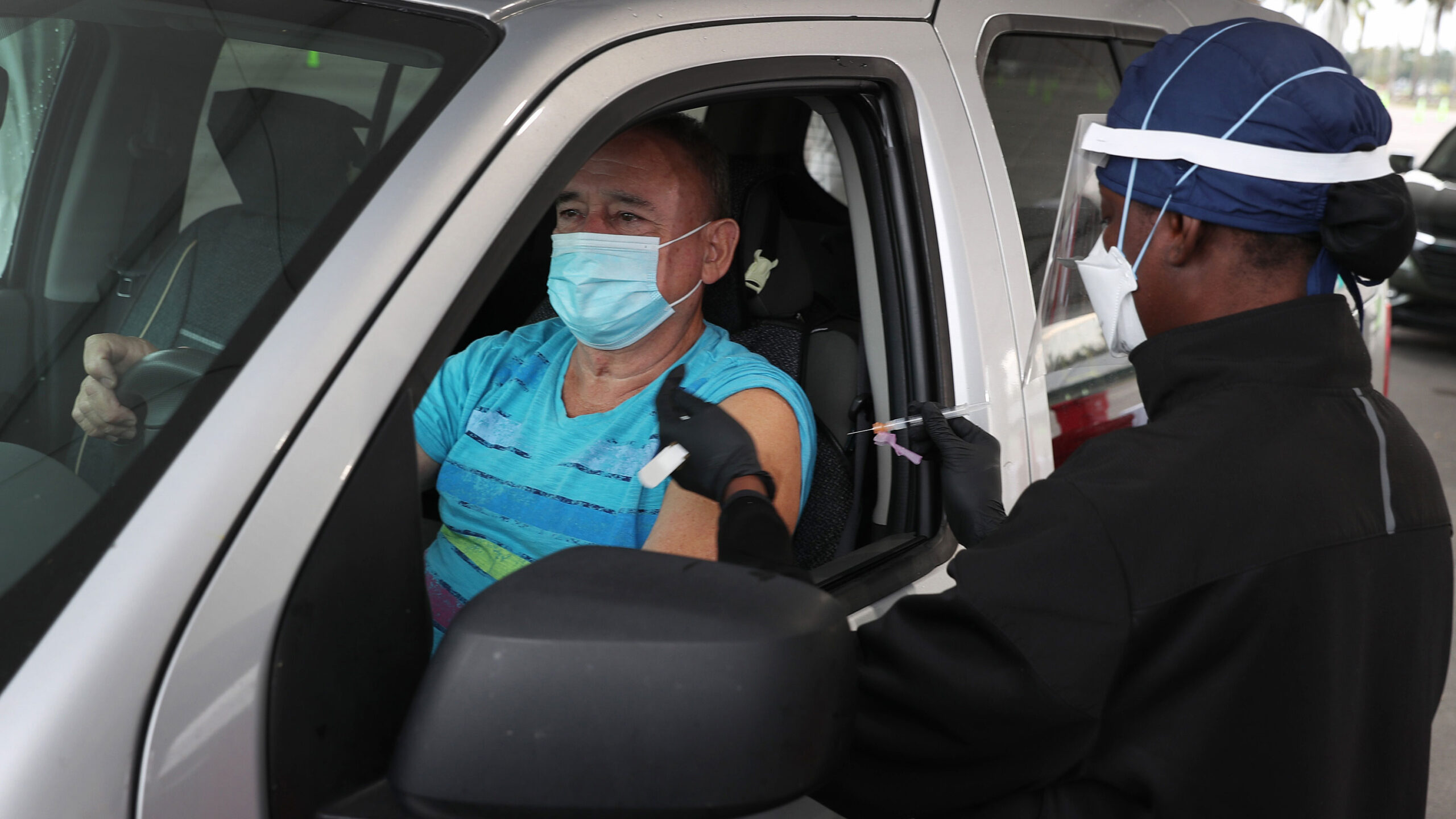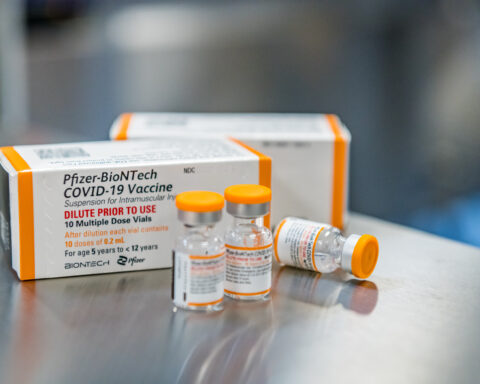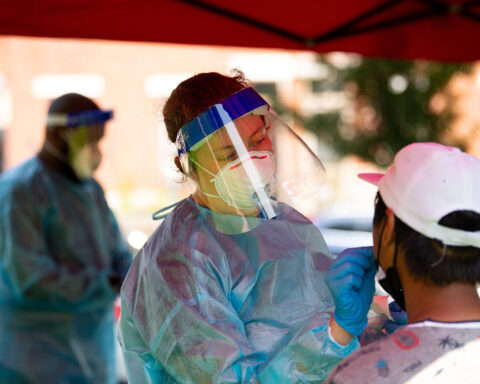While vaccinations are ramping up across the United States and many parts of the world, some preliminary studies have suggested the current vaccines may not be as effective with emerging coronavirus variants.
With companies looking to develop booster shots that target these variants, some have asked — should I wait before I get the vaccine if there could be an even better one later? Or does the arrival of the variants mean that it’s even more urgent to get vaccinated now?
We spoke with CNN Medical Analyst Dr. Leana Wen, an emergency physician and visiting professor at George Washington University Milken Institute School of Public Health, for guidance on how to think about vaccinations in the midst of these emerging variants.
CNN: What are these variants and why could they be problematic?
Dr. Leana Wen: The SARS-CoV-2 virus that causes Covid-19 is an RNA virus. These viruses are known to acquire mutations as they spread. There are strains that have certain mutations that are of some concern. The variant first identified in the United Kingdom, B.1.1.7, is believed to be more contagious than the existing strains. If a variant is more contagious, it can quickly become the dominant strain and crowd out others. Countries that have the B.1.1.7 variant have seen rapid increases in Covid-19 infections.
Two other variants of potential concern are those that first were identified in South Africa and Brazil, named B.1.351 and P.1, respectively. These two may also be more contagious. Additionally, some studies have found these variants could make reinfection more possible — meaning that if someone had another strain of Covid-19 before, they could still be infected with these strains. Also, the mutations the variants have may render them less susceptible to the vaccines developed — though it’s important to note that the current vaccines still do work against them, albeit perhaps a bit less effectively.
CNN: Isn’t that concerning? What happens if vaccines no longer work against new variants?
Wen: This is certainly something that needs to be studied and followed. Research is being done now on the Pfizer and Moderna vaccines to make sure they are still effective against the emerging variants. The companies have also said that they are looking into booster shots that specifically target the variants.
It may end up being that we need booster shots. Or maybe the Covid-19 vaccine will end up being like a flu shot, where every year, we have to get a vaccination that targets new variants that may develop over time.
CNN: Then shouldn’t we wait until there is a booster and just get that shot?
Wen: No, and here’s why. First, we don’t know when these booster shots might come out. It may be months, and the booster shots may require that you first have completed the vaccine series. If you have the opportunity to get the vaccine now, you should do so to protect yourself. Remember that the vaccines we have are still effective against the variants.
Second, it may be that we keep having to play catch-up with new mutations. These RNA viruses mutate a lot. The more they replicate, the more they mutate. That means that the more infection there is in a community, the more virus circulating in that community is likely to acquire mutations, and new variants could arise. It may be that the vaccines may need to continuously be evolving to keep up with the variants, which means, again, we may need to get regular booster shots.
Third, because variants are arising when there is high community spread, it’s really important to try to reduce the level of transmission. Vaccination is a key part of our plan to get there, as are masking, physical distancing, avoiding crowded indoor gatherings and other public health measures. The arrival of the variants should mean that we ramp up vaccinations even more — and that everyone who is eligible to get a vaccine and able to get one should do so.
CNN: What about the new vaccines being developed — could they be more effective against the variants?
Wen: We don’t know. This is why it’s hard to compare the efficacy of the vaccines head-to-head. The Pfizer and Moderna vaccines were developed and tested before these more concerning variants become dominant. Johnson & Johnson and Novavax were tested after, including in some sites with these variants already circulating.
We may get more research over time about the specific efficacy of the vaccines against each variant, though I want to point our attention to why vaccine trials matter: the very real risk of severe illness and hospitalization. That’s ultimately what makes Covid-19 such a serious disease. If the vaccines can reduce severe illness to the point that they prevent people who get the vaccine from becoming so ill they are hospitalized, that’s what we really want.
CNN: What if I’ve already had coronavirus — should I still get the vaccine? Does it matter what strain I got when I was infected?
Wen: Yes. Especially now that it appears reinfection could occur with the variants, it’s even more important for those who have already had coronavirus to be vaccinated, too.
As far as knowing the strain you have, the United States has done very little genomic sequencing of the infections we’ve had. That means, when people are diagnosed with coronavirus infections, we’re not doing the specialized testing we need to see what variant the infection is caused by. Until recently, we were doing under 0.5% of all the cases; this is now beginning to increase but it’s still relatively low compared to other countries. In comparison, Denmark is sequencing more than half of its positive cases. It’s unlikely that you would know what strain you had from your infection before, so the recommendation still holds that you should get the vaccine if you’re eligible.
CNN: With the arrival of more contagious strains, are there additional precautions we should be taking in addition to getting the vaccine when we can?
Wen: The good news about the emerging strains is that they are still spread the same way, through the respiratory route, primarily through close contact and also through aerosol transmission. (While surface transmission is also possible, it’s probably a lesser contributor than these other methods.) That means the same precautions you’ve been taking to prevent Covid-19 still apply with the new variants.
Here’s the concern. The normal strains of Covid-19 are already pretty contagious, but the new strains are even more contagious. That means the activities we thought were low risk are now more dangerous. We have to take even more measures to protect ourselves.
That means wearing a good-quality mask any time you are within 6 feet of others outdoors and any time you are indoors with others who are not in your household. Wear at least a three-ply surgical mask. Some wear a cloth mask that is better fitting over a looser surgical mask. Double masking can significantly improve protection, new data from the US Centers for Disease Control and Prevention revealed Wednesday.
An N95 or KN95 may be of help if you are going to be in particularly close quarters where you cannot physically distance, though these masks are in short supply and may be uncomfortable to wear for long periods of time. You should take even more care to avoid being indoors with others, and if you must, to maintain physical distancing and try to be in well-ventilated spaces only.
The arrival of the more contagious variants means that we need to double down on the public health measures we know to be effective in reducing Covid-19 transmission. The race to vaccinate is crucial, too. The best tool we have to slow the development of more variants is to slow the spread of the virus. So please, let’s get vaccinated when it’s our turn, and keep safe — for yourself and for those around you.





